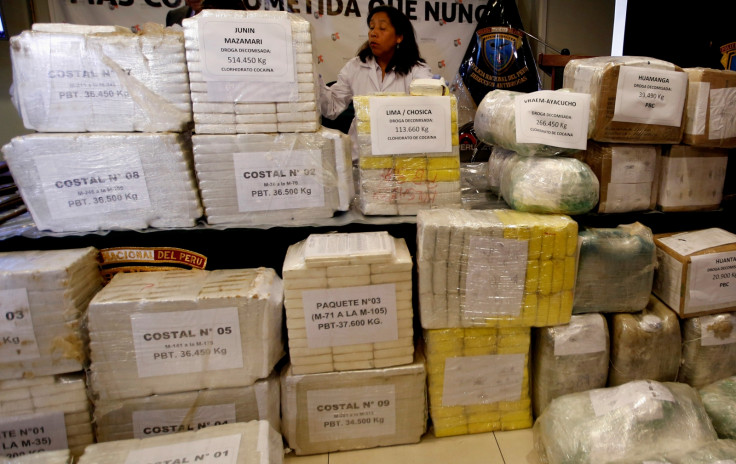Peru makes more drug smuggling arrests as fears of cocaine demand rise ahead of Rio Olympics
Anti-narcotics chief says throngs of visitors headed to the Olympic Games might be boosting drug demand in Brazil.

With barely two days to go before the 2016 Rio Olympics in Brazil, authorities in neighbouring Peru are reportedly closing in on drug smuggling arrests and seizure ahead of the Games. The police said on Tuesday (2 August) that foreigners carried packs of cocaine in their stomachs, risking death, in order to cash in on a potential increase in demand.
A total of 19.6 tonnes of narcotics have so far been confiscated this year and a vast majority of them are cocaine and cocaine paste. The amount is 25% higher than the last year's seizure, said Luis Pantoja, chief of Peru's anti-narcotics police department. He said that at least 98 so-called drug mules were arrested since January, where most of them were foreign nationals. It is again said to be an increase in the number compared to previous periods.
"If we keep that up through December, we'll have beaten the historic record in drug seizures," Pantoja was quoted as saying by Reuters.
Although it remained unclear what was contributing to the spike in demand, the police chief believed that the swarm of visitors heading to the Games in Rio de Janeiro might be driving the trend. A similar raise in drug-trafficking was reported in the country before Brazil hosted the 2014 football world cup.
Brazil is reported to be the second biggest consumer of cocaine in the world after the US, while Peru is apparently on par with Colombia as the world's top cocaine producer.
"There's a history of people dying," Pantoja said referring to the death of Nigerian man, who reportedly carried latex packets of cocaine in his stomach, by swallowing it to smuggle the drug across Peru's border. It broke open inside his body leading to his death last year.
Peruvian government sanctioned a law, which came into effect earlier this year that allowed military to target aircraft suspected of carrying drugs. However, it emerged that the law had prompted traffickers to rely on boats and backpacked to carry out their activities of moving cocaine out of a remote jungle region.
The 2016 Olympic Games will open on Friday (5 August) in Rio and Brazilian authorities have heightened security measures and border control ahead of the world's biggest sporting event.
© Copyright IBTimes 2025. All rights reserved.





















